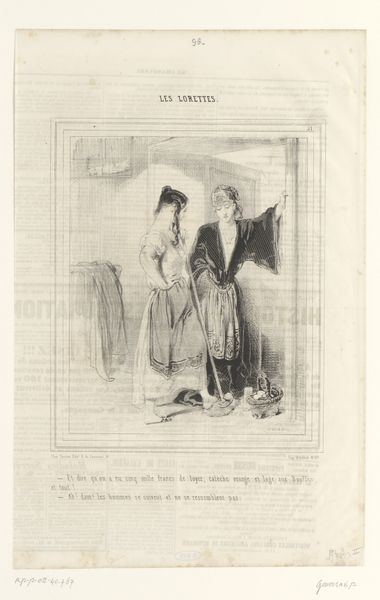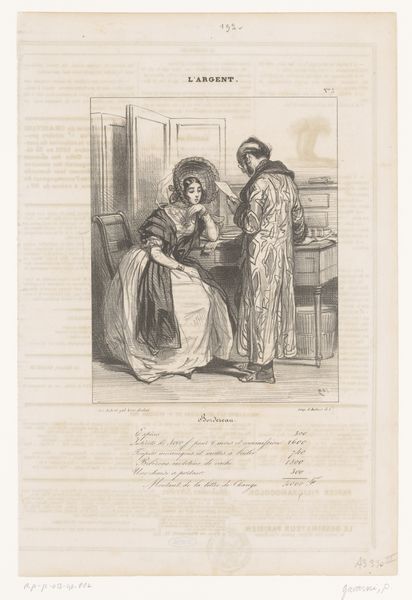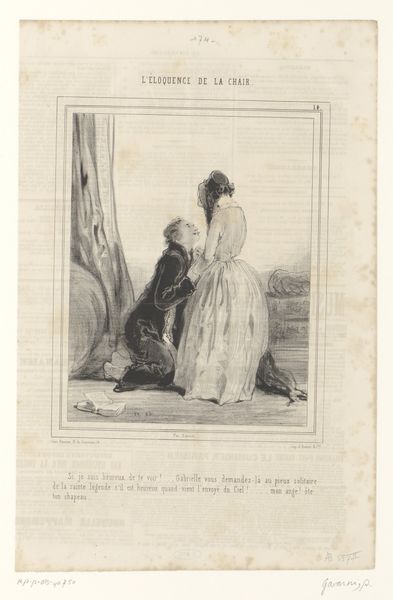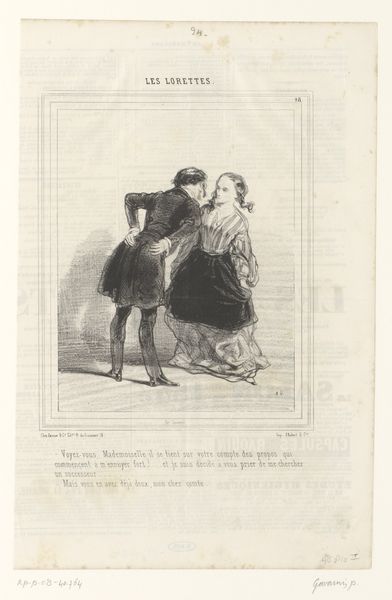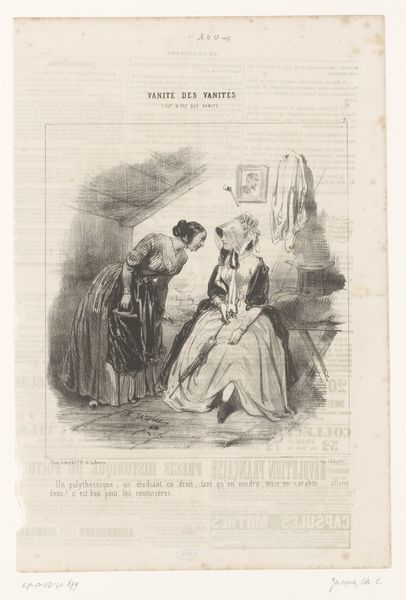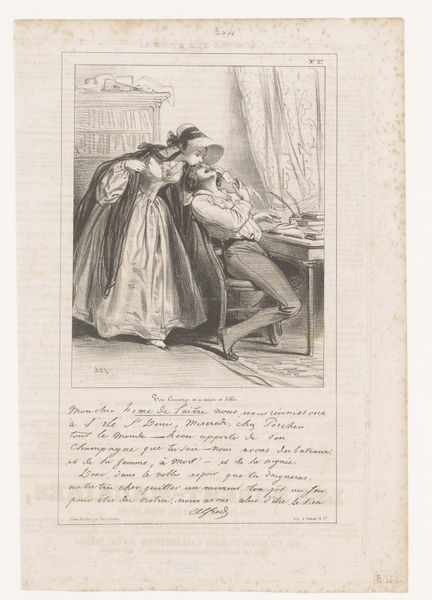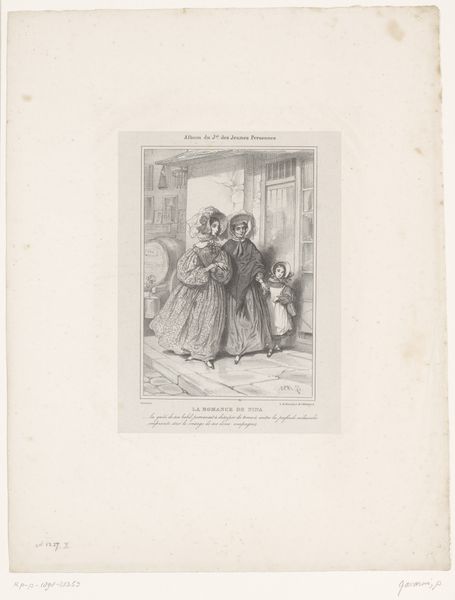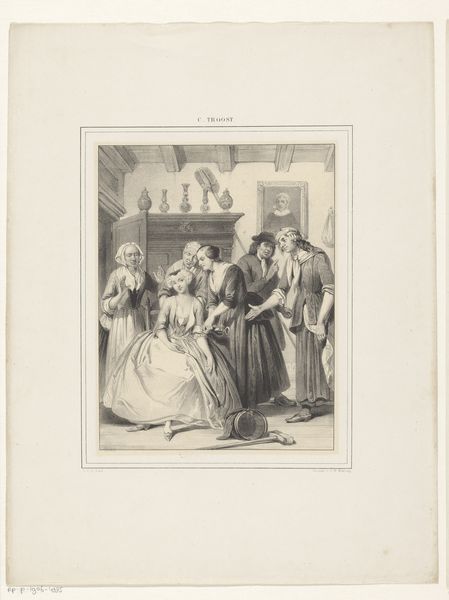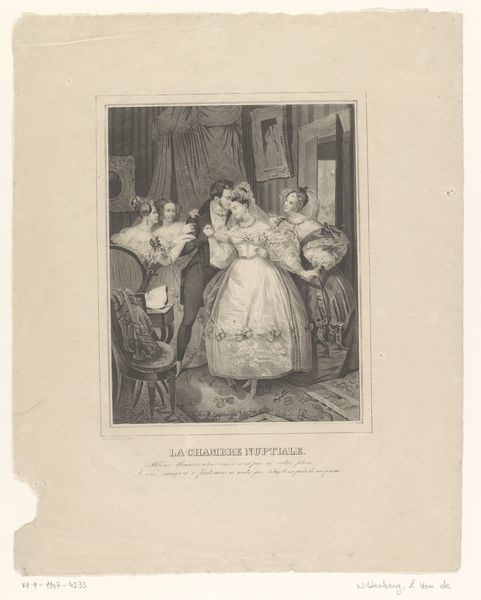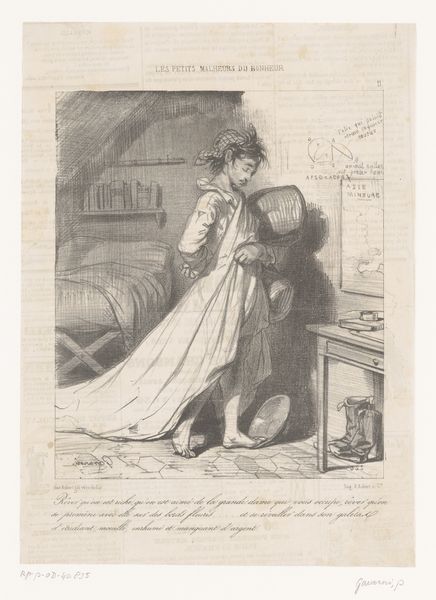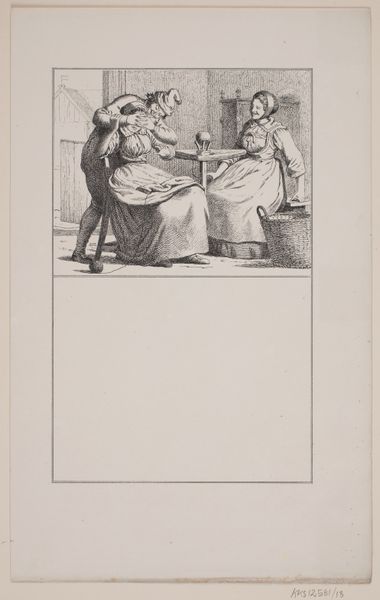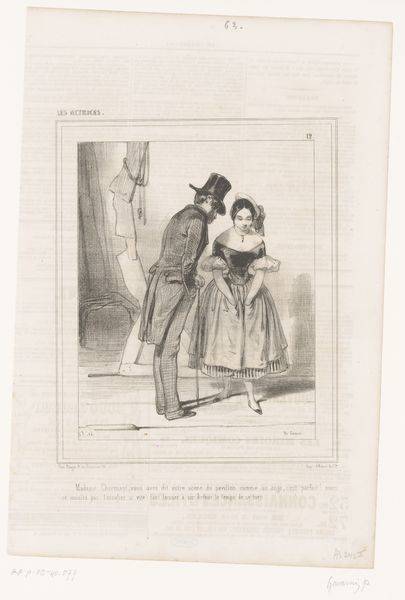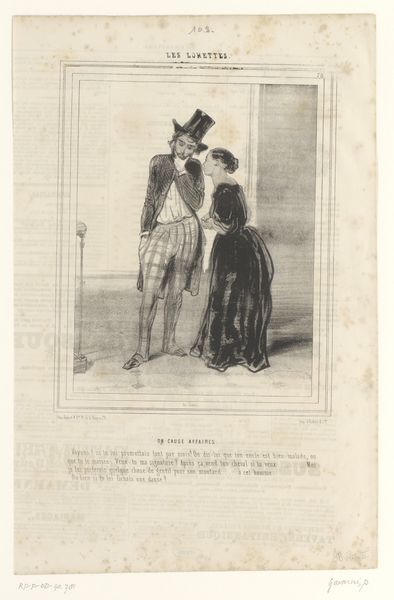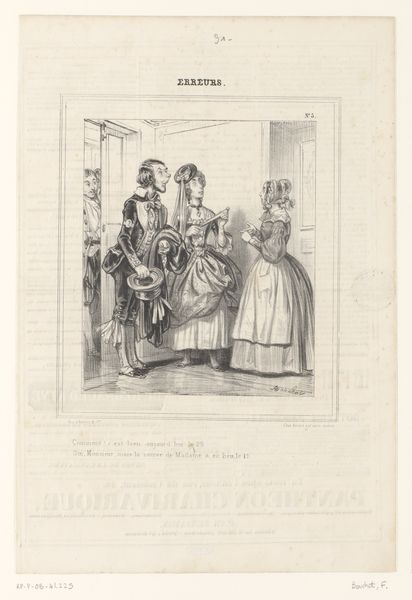
drawing, lithograph, print, pen
#
portrait
#
drawing
#
lithograph
# print
#
caricature
#
romanticism
#
pen
#
genre-painting
#
realism
Dimensions: height 363 mm, width 247 mm
Copyright: Rijks Museum: Open Domain
Editor: This lithograph from 1843 by Charles Jacque, titled "Oude vrouw spreekt buurvrouw aan in trappenhuis," depicts a group of figures on a staircase. There’s something almost theatrical about the way the figures are posed. What kind of commentary do you think Jacque was making with this piece? Curator: The scene strikes me as deeply rooted in the social fabric of 19th-century Parisian life. Consider the title, implying an "old woman addressing her neighbor in a stairwell." These shared spaces were hubs for gossip and the transmission of social norms. It is like looking at a candid social observation from the period, perhaps critiquing the societal pressures surrounding marriage and social mobility, given the inscription mentioning someone "making a good marriage". Do you see that playing out in the character’s expressions or attire? Editor: Yes, actually! The woman in the wreath, for instance, seems to be displaying her social position for approval or, even better, envy from her peers, but it almost seems staged. Curator: Precisely! Jacques places on display the performance of status within confined social strata. Consider the Romantic influence of this artwork—can you see the theatrical composition of light and shadow heightens the drama? That contrast underscores the instability of social standing. The dark shadows become the rumors and judgments. Editor: I hadn’t considered the shadows to represent rumors but that makes total sense. Also the fact that the text is included within the print is an important inclusion, not only for commentary purposes but, more simply, for narration. Thank you, it is like discovering the sociopolitical stage within this domestic setting. Curator: Exactly. It gives you much to reflect on regarding how we read, experience, and perhaps critique visual representation through a socio-historical lens.
Comments
No comments
Be the first to comment and join the conversation on the ultimate creative platform.
